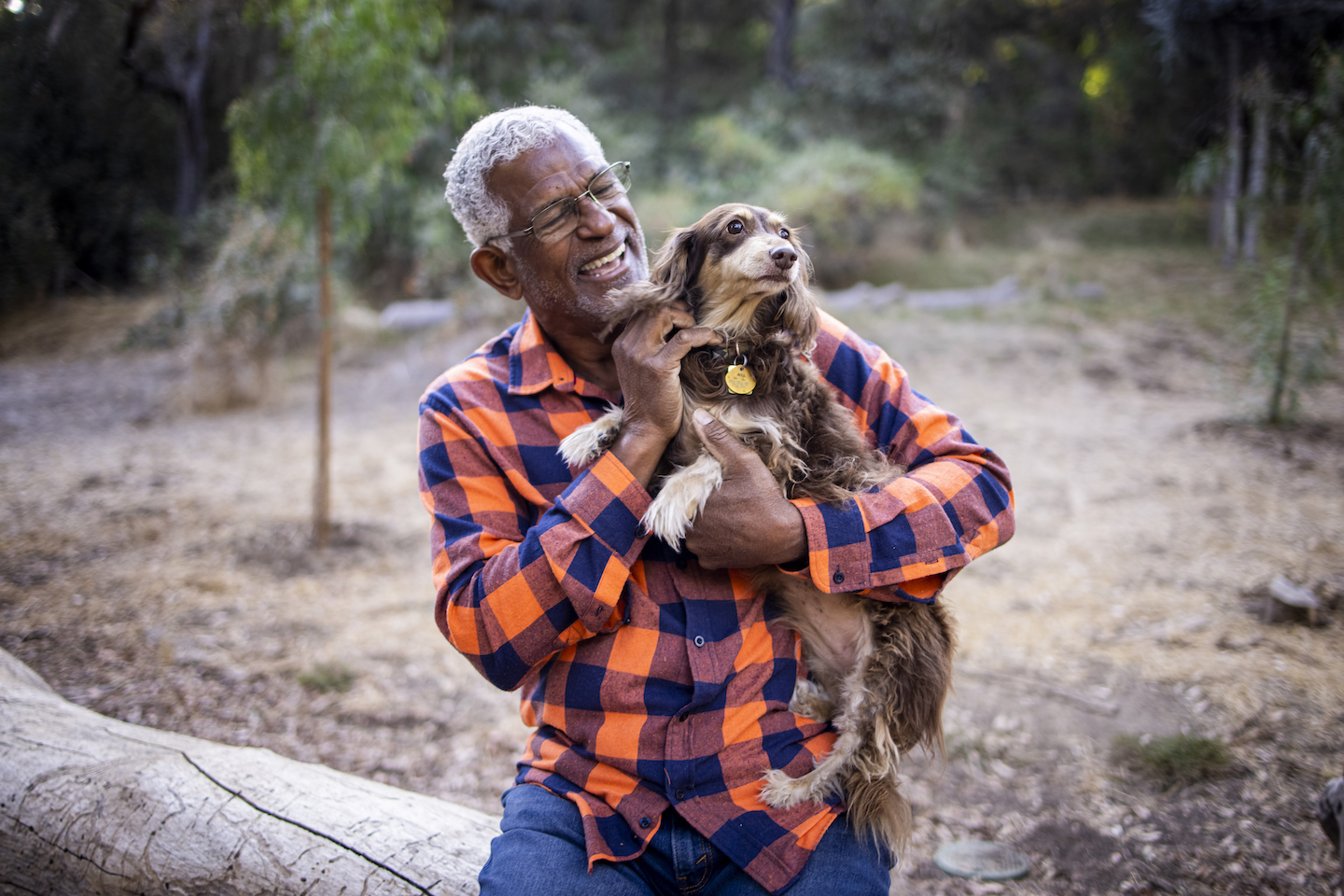A dog’s breed doesn’t say much about its behavior
Our canine companions are as individual as people are

Jack, shown here, is a mix of American pit bull terrier, Siberian Husky and other breeds. Scientists reviewed genetic data together with survey responses from pet owners about their dogs. These data revealed that breed may be less predictive of behavior than most people think.
Jane O’Donnell
By Anna Gibbs
We may be unfairly stereotyping dogs, new data suggest.
Modern breeds are often recognized by physical traits. Chihuahuas’ batlike ears. Poodles’ curly hair. Dachshunds’ long bodies and short legs. Breeds are frequently associated with certain behaviors, too. The American Kennel Club describes border collies as “affectionate, smart, energetic,” for instance. Beagles are “friendly, curious, merry.”
But new evidence suggests that breed is a poor predictor of your pooch’s behavior. A study collected genetic information from more than 2,000 dogs. That info was paired with answers to surveys by thousands of dog owners. On average, breed explains only 9 percent of the behavioral differences between individual dogs, the study shows.
Researchers shared their findings in the April 29 Science.
Elinor Karlsson studies dog genetics. She works at the University of Massachusetts Chan Medical School in Worcester. “Everybody was assuming that breed was predictive of behavior in dogs,” she said at an April 26 news briefing. But “that had never really been asked particularly well.”
One study in 2019 linked genetics with some variation between breeds as a whole. Genes could explain some of the differences between, say, the behaviors of poodles and chihuahuas. But Karlsson and her colleagues wanted to know about individuals. How well does a given breed predict a dog’s behavior?
Calling all dogs
For that, the team needed genetic and behavior data from a lot of dogs. So they developed Darwin’s Ark. It’s a database where pet owners can share information about their animals. More than 18,000 owners took part. They answered more than 100 questions about their dog’s traits and observable behaviors. The researchers then grouped those data into eight “behavioral factors.” One factor was how comfortable a dog is around people. Another was how well it responds to commands.
The researchers also collected genetic data from 2,155 dogs. Those included 1,715 dogs from Darwin’s Ark where owners had sent in dog-saliva swabs. The team made sure to include both purebred and mixed-breed dogs, or mutts. Stereotypes about purebreds could affect how those dogs are treated — and thus behave. Mutts don’t come with the same expectations. So mutt data could help focus on how genes seem to affect behavior.
Studying mutts also helps separate traits that often occur together in pure breeds, says Kathleen Morrill. She’s a geneticist in Karlsson’s lab. “And that means on an individual basis you’re going to have a better shot at [identifying] a gene that is actually tied to the question you’re asking.”

The team then combined the genetic and survey data for individual dogs. They looked for genes that appeared linked to particular traits. Comfort around people emerged as the behavioral factor most strongly tied to genetics. Movement-based behaviors — such as howling and retrieving — are also passed down through genes more than other traits.
That makes sense, Kathryn Lord said during the briefing. She studies dog evolution with Karlsson. Modern breeding has only been around for the last few hundred years. Before that, dogs were chosen for how well they did jobs, such as hunting or herding. The effects of those choices still show up in breed groups today. For instance, herding dogs tend to respond well to commands and be interested in toys.
It’s not surprising, then, that a breed as a whole might be more likely to display certain behaviors. As their name suggests, retrievers are more likely to retrieve than individuals of other breeds.
But in the study, breed didn’t always predict how an individual dog would behave. As a group, retrievers were less likely to howl. Some owners, though, reported their retrievers howled often. And greyhounds rarely bury toys — although a few do.
As individual as people
The results support what people have observed: Dog breeds differ on average in behavior. Still, there’s a lot of variation within breeds, says Adam Boyko. He did not take part in this project. He does, however, study dog genetics at Cornell University in Ithaca, N.Y.
Body size had even less of an effect on an individual dog’s behavior. That might be a surprise, Boyko notes. Small dogs are often thought to be yappier than big ones, for instance. In fact, size had almost no effect on yippiness at all. If small dogs do behave worse than large dogs, Boyko says, it might have little to do with their genetics. “I think it’s that we typically tolerate poor behavior more in small dogs than we do in big dogs,” he says.
Curtis Kelley is a dog trainer at Pet Parent Allies in Philadelphia, Penn. “Dogs are as individual as people are,” he’s found. Breed gives a loose guideline for what type of behaviors to expect. “But it’s certainly not a hard-and-fast rule.”
When looking to buy a dog, he says, don’t put too much stock in its breed. Even within a litter, dogs can show very different personalities. “A puppy will show you who they are at eight weeks old,” he says. “It’s just our job to believe them.”







